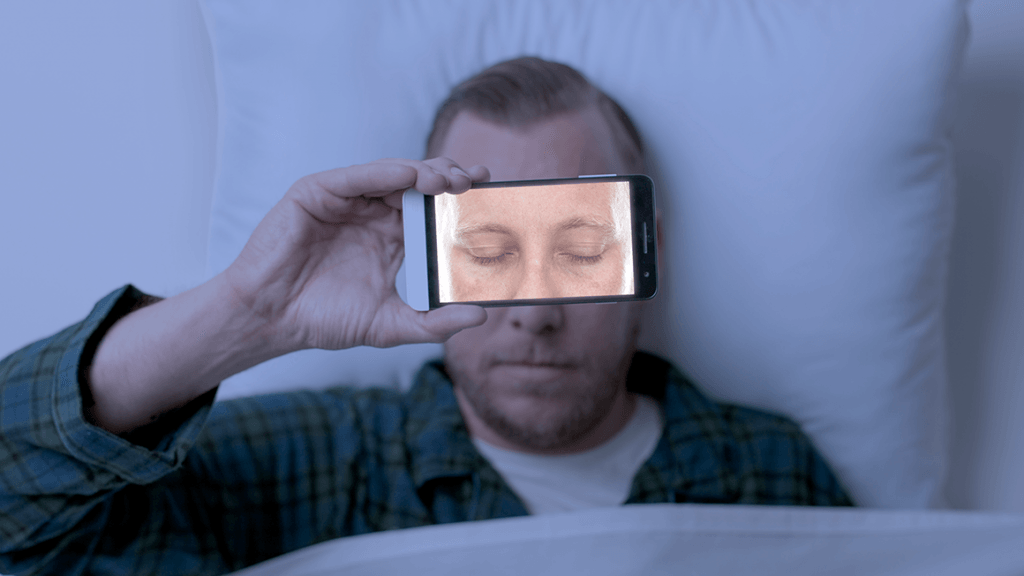Find Out Why a Lack of Sleep is a Productivity Nightmare

Feeling a little groggy? Hitting the coffee first thing in the morning to jolt yourself into alertness? Maybe you aren’t getting enough sleep. When we don’t get enough shut-eye, we have trouble concentrating, working, making decisions, remembering things, and being our best selves. We get crabby, tetchy, and unpleasant to be around. But the problem is more serious than just being in a bad mood. The National Sleep Foundation (NSF) says we’re 12 percent more likely to die prematurely if we don’t get the recommended seven to nine hours a night.
A lack of sleep can be costly—in more ways than one
Lack of sleep can also cost companies real money. A 2016 study by the RAND Corporation found that because of sleep deprivation, the U.S. sustains economic losses of up to $411 billion a year (or 1.23 million working days), nearly three times the $138 billion Japan loses.
A 2007 Harvard report showed that the effects of a lack of sleep include reduced efficiency and productivity, more errors, and accidents. These consequences can even be deadly. The Harvard report noted that preventable medical errors, many of which are the result of physicians and surgeons not getting enough sleep, cause more than a million injuries and between 50,000 and 100,000 deaths each year. On a more significant level, the Harvard study showed that some of the deadliest accidents in recent history could be related to sleep deprivation, including, the report noted, the 1979 nuclear accident at Three Mile Island, the 1986 nuclear meltdown at Chernobyl, the grounding of the Exxon Valdez, as well as the explosion of the space shuttle Challenger.
Now that we’ve seen the dangers of a lack of sleep (which are, ironically, enough to keep you awake at night), let’s discuss ways to get your eight hours in as best as you can.
A few sleep hacks for better rest
Try to keep your routine as regular as you can. A consistent sleeping routine allows our bodies to use their natural cycles most efficiently. Given our busy schedules, it may not be possible to have a set bedtime every night, but small things—not sleeping in on weekends, not trying to “catch up” on sleep, not fighting the body’s natural cycles—can help us sleep more efficiently. Keep a journal of when you feel tired and when you’re more awake.
Pro tip: Use a sleep tracking app and store your results in Evernote. Over time, you’ll be able to detect patterns, gain insight into your body rhythms, and you can even share the information with your doctor.
Technology is your sleeping self’s friend. Are you on your phone or computer a little too much in the evening? Set an alarm that will tell you when to go to bed. If you find you’re addicted to your electronics, there are many apps that will shut them off.
Beware the blue screen of wakefulness. It turns out that the blue light emitted from most electronic devices is Public Enemy #1 when it comes to sleep. It destroys melatonin, one of the hormones that help us sleep. If you have a hard time letting go, there are (fortunately) some apps that will help reduce the blue light that hits our retinas.
Make sure your sleeping area is restful. Our bodies work around the cycle of the sun. When it’s light out, we want to be active, and when it’s dark, we tend to shut down. Any sound can creep into our consciousness, so, while no noise is best, white noise (from an app or a machine) can provide a neutral background to block out other, more intrusive, sounds.
A good night’s sleep organizes the mind
The benefits of getting a good night’s sleep are many, but most notable are:
- More focus. When you’re fully awake, your mind has an easier time staying clear, your eyes stay open, and you’ll be able to concentrate on your goals.
- Sharper decision-making. If you’re well-rested, you’ll have the mental capacity to consider more aspects of anything—in fact, the NSF shows that decision-making skills can improve by as much as 4 percent.
- Improved memory. The end-of-the-day sweeping gets rid of a lot of clutter and allows you to remember the stuff that counts. The 2007 Harvard study cited above showed that the consolidation of information that takes place only during sleep is “essential for learning new information.”
- Better accuracy. We all know how alcohol impairs our motor and decision-making skills, but being sleep-deprived can impair you by as much as fifty percent more than being under the influence.
For many people, the idea of being told that it’s time to go to bed reminds us of being a child. Not only that, we feel like we have too much to do and not enough time to take care of it all in the evenings. Given the alternatives to getting enough sleep, though—poor productivity, inability to concentrate, and health risks that can, in extreme cases, kill us—the benefits of turning out the lights and hitting the hay far outweigh the temptations of staying up late.
Visit Link

